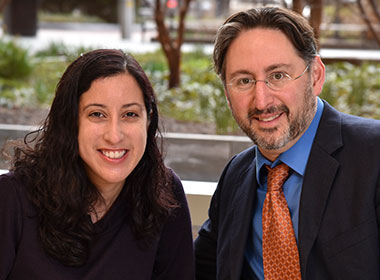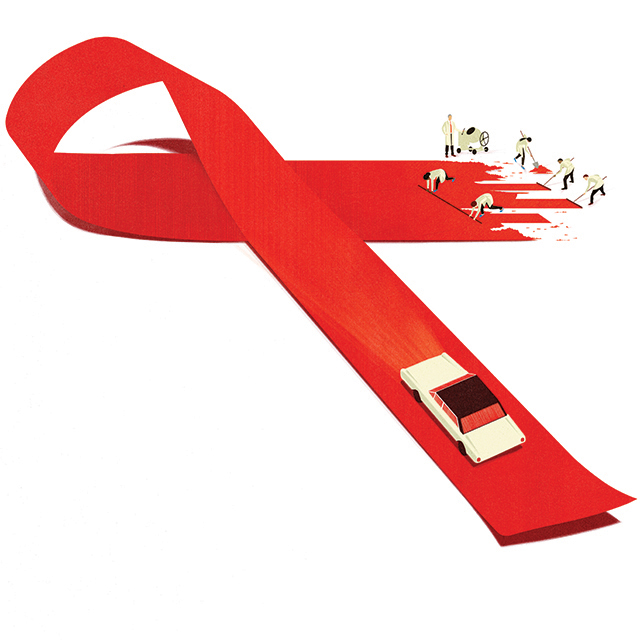When Kenneth was diagnosed with the human immunodeficiency virus in 1986, he thought it was a death sentence. While the Food and Drug Administration approved the first medication for HIV in 1987, the deadly disease was turned into a chronic illness thanks to the concept of combination antiretroviral therapy introduced in 1996. With medical innovations and a bimonthly support group called Project LINK, Kenneth is thriving.
“When you’re first diagnosed, you feel alone and afraid,” says Kenneth (all Project LINK members in this story wish to be referred to by first name only). “Here we learn that we’re not alone. We can talk openly and honestly. I think it’s one of the reasons I’m still alive. This group helps me stay positive.”
Project LINK coordinator and licensed pharmacist Shivaun Celano, Pharm.D., says the group’s name is not an acronym. It is so named because it links patients to care and connects HIV patients to one another every other week for an hour and a half. Celano says the program has been going strong for 22 years, and some participants have been attending for more than a decade.
All participants must be patients at the John G. Bartlett Specialty Practice. The clinic offers services for patients with HIV and an array of infectious diseases including hepatitis and general infectious diseases. It also offers PrEP (HIV pre-exposure prophylaxis) treatment.
“It’s really important to have a safe place to go and a soft place to land,” Kenneth says. “I love that there’s no judgment. Nobody cares how you got HIV. None of that is important. You’re here to get support and we’re here to give it to you. There’s always somebody really listening and paying attention. You see the love and genuine concern we have for each other.”
No topic is off-limits. Group members discuss how to best treat and monitor the disease, and how to disclose their HIV status to friends and family. They also commiserate about such medication side effects as headaches and gastrointestinal problems. They talk about how to accept HIV as a chronic illness and how to deal with its emotional toll. And they offer encouragement to show up for clinic appointments, to communicate openly and honestly with their health care provider and to take their medication as prescribed in order to help maintain an undetectable viral load.
Patrice Henry, a senior community program coordinator and lead patient navigator at the Bartlett practice, leads the support group. Henry is HIV positive.
“She’s a beacon of hope for people,” Celano says. “She’s walked in their shoes and she has an instant connection with them.”
Henry says she just tries to give the group hope and encouragement.
“I can help answer questions about how to live with HIV,” she says. “I share my story and what I went through. When I was first diagnosed, I was given a month or so to live, and now I’m here to talk about it 23 years later.”
Group member Sylvia describes Project LINK as a “big happy family.”
“We all get along and give each other respect,” she says.
Group member James says he appreciates that “there’s no stigma here.”
“The group makes me feel good because I can trust them with anything,” he says. “I’m not ashamed anymore. I have a better mindset now. They help me to be more open.”
“They constantly call to see how I am, but they don’t make you feel guilty or pressure you to come to group,” adds Project LINK member Reggie. “You know the door is open, and sometimes, that’s all you need.”
For those unsure if a support group is right for them, member David asks, “What’s to lose?”
“Just give it a try. Everyone is going to be respectful. Everyone is going to be nice. No one is going to humiliate you or put you on the spot,” he says. “You’ll learn things and you’ll realize you’re not alone. Sometimes, it’s the only thing I look forward to all week.”
For more information about Project LINK, call Patrice Henry at 410-955-1165.


